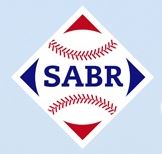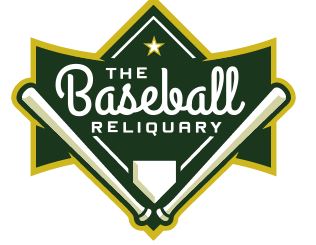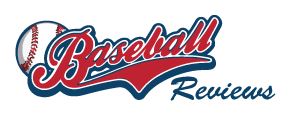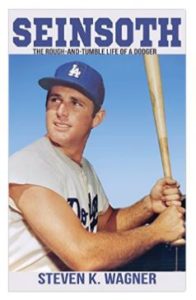 Seinsoth … The Rough and Tumble Life of a Dodger
Seinsoth … The Rough and Tumble Life of a Dodger
By Steven K. Wagner
$29.95
Sunbury Press, Mechanicsburg, PA; November 2016
Available at: Sunbury Press, Amazon.com and bookstores.
Steven Wagner’s very personal telling of Bill Seinsoth’s story of triumph and tragedy will leave you wondering what might have been and wishing you had enjoyed the pleasure of crossing paths with Seinsoth – the ballplayer and the young man. You’ll also likely be convinced – as I was – that Bill Seinsoth packed a lot of life into his 22 years. An inspiring tale, well told.
Baseball Roundtable, 2017
Adversity – Triumph – Tragedy. That is the all-too-short life story of Bill Seinsoth, well- told in Steven K. Wagner’s book “Bill Seinsoth – The Rough and Tumble Life of a Dodger.”
William Robert Seinsoth was born (Los Angeles, California; April 7, 1947) to be a baseball player. His father William Welty Seinsoth was a left-handed pitcher who spent 13 seasons in the minor leagues (and earned a brief call up to the American League St. Louis Browns). Bill Seinsoth (son) carried on the family tradition as a hard-throwing, hard-hitting left-handed pitcher and first baseman. Like so many youngsters of his era, young Bill longed to be a major leaguer. He spent most of his life scorching a path toward that goal – starring on every team at every level he ever played in. Seinsoth, in fact, had the brass ring of major league stardom on the edge of his fingertips when he lost his life – at just 22 years of age – in a tragic automobile accident. Along the way, Bill Seinsoth overcame obstacle and injury. Steven Wagner has chosen to share Bill Seinsoth’s story with readers. It is a story of courage, good nature and triumph in the face of adversity, of consistent excellence on the ball field and, in the end, of unexpected tragedy.
Wagner tells Seinsoth’s remarkable story not just in his own (Wagner’s) words and well-researched statistics, but also in the words of Bill Seinsoth himself, as well as those of his family, friends, coaches and teammates. In the book, we hear from: Seinsoth’s family and friends; his high school and college coaches; professional scouts and managers; teammates that went on to the major leagues like Bill “Spaceman” Lee, Bob Boone, Ron Cey, Tom House (and more). There are even cameo appearances in Seinsoth’s life by the likes of Tommy Lasorda and O.J. Simpson. It’s a very personal tale and Wagner will leave you wondering what might have been and wishing you had enjoyed the pleasure of crossing paths with Bill Seinsoth. You are also likely be convinced – as I was – that Bill Seinsoth packed a lot of life into his 22 years.
There is no doubt that adversity had a way of finding Bill Seinsoth. Here are just a few examples of the trials he faced: beleaguered by parents who believed he was just too talented a player and pressured the Seinsoth family to pull him out of Little League and Babe Ruth League baseball; slashed twice (high school and college) by knife-wielding assailants; had his nose broken three times in one year (baseball and surfing); suffered a broken wrist and severe eye injury when hit by pitches in college; and, the ultimate tragedy, lost his life at age 22 in an automobile accident while driving home following his first season in the minor leagues.
Through all of this he persevered and triumphed – California Interscholastic League (high school) Player of the Year; College World Series Most Outstanding Player award and All American recognition; Alaska Goldpanners (collegiate summer league) MVP; first-round draft pick of the Los Angeles Dodgers. But I’m getting ahead of myself. You’ll need to read the book to get the full details, but here are a few highlights.
“Bill was not just a great baseball player, but a complete person who faced adversity and hardship – and there was much of it – with grace, dignity and a broad smile.”
Tommy Hutton – Twelve-season major league 1B/OF, long-time baseball broadcaster and Bill Seinsoth’s cousin. From Bill Seinsoth – the Rough and Tumble Life of a Dodger.
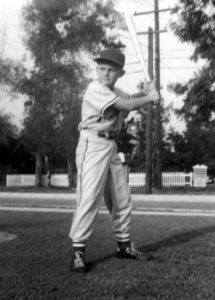 Wagner takes us through Seinsoth’s Little League years, where he was far and away the best player on the field. In fact, his dominance was so clear that a number of parents demanded the eleven-year-old (nicknamed “No-Hit Seinsoth”) be pulled from the League). The animosity grew to such a level (the family’s mail box was blown up four times) that Seinsoth did leave Little League early, a scenario that was repeated at the Babe Ruth League level.
Wagner takes us through Seinsoth’s Little League years, where he was far and away the best player on the field. In fact, his dominance was so clear that a number of parents demanded the eleven-year-old (nicknamed “No-Hit Seinsoth”) be pulled from the League). The animosity grew to such a level (the family’s mail box was blown up four times) that Seinsoth did leave Little League early, a scenario that was repeated at the Babe Ruth League level.
“I remember one occasion when the opposing team just flat out asked him not to pitch. They were terrified of batting against him.”
Chris Arnold, six-season major league infielder and Little League teammate of Bill Seinsoth. From Bill Seinsoth – The Rough and Tumble Life of a Dodger.
We also get a look at Seinsoth’s high school career – where he was a standout at both baseball and basketball at Arcadia High. In 1965, he led his basketball team in scoring and the baseball squad to a California Interscholastic Federation title. That season, Seinsoth went 15-1, with a 0.72 ERA on the mound (145 strikeouts in 116 1/3 innings pitched) and hit .390. In the playoffs, he logged five complete-game victories. Seinsoth was named CIF Player of the Year – a portent of many recognitions to come.
“He was the best I ever coached. He was dominating, intimidating. He was a man playing with boys.”
Lani Exton, Bill Seinsoth’s high school baseball coach. From Bill Seinsoth – the Rough and Tumble Life of a Dodger.
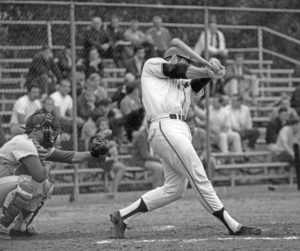 From high school, it was on to college at the University of Southern California (1966-69), where he played under legendary coach Rod Dedeaux (eleven national titles and 28 conference championships, six-time College Coach of the Year and Collegiate Baseball Magazine Coach of the Century). Seinsoth had a brilliant run at USC – where he played with such future major leaguers as Bill “Spaceman” Lee, Tom House, Jim Barr and Brent Strom. At USC, Seinsoth was selected as the Most Outstanding Player of the 1968 College World Series, earned All American recognition and was named the USC team captain. Seinsoth showed the depth of his toughness in the face of adversity in 1969. Early in the season, after crushing a single and a home run in the first game of a doubleheader against Oregon State, Seinsoth took a fastball to the head (above the right eye) in his first at bat of the second game. The blow knocked him unconscious. Rushed to the hospital, he had fifteen stitches to close the wound over his right eye and suffered a blood clot behind the eye that resulted in double vision. He missed just five days (two games) on his way to a .368-14-52 season.
From high school, it was on to college at the University of Southern California (1966-69), where he played under legendary coach Rod Dedeaux (eleven national titles and 28 conference championships, six-time College Coach of the Year and Collegiate Baseball Magazine Coach of the Century). Seinsoth had a brilliant run at USC – where he played with such future major leaguers as Bill “Spaceman” Lee, Tom House, Jim Barr and Brent Strom. At USC, Seinsoth was selected as the Most Outstanding Player of the 1968 College World Series, earned All American recognition and was named the USC team captain. Seinsoth showed the depth of his toughness in the face of adversity in 1969. Early in the season, after crushing a single and a home run in the first game of a doubleheader against Oregon State, Seinsoth took a fastball to the head (above the right eye) in his first at bat of the second game. The blow knocked him unconscious. Rushed to the hospital, he had fifteen stitches to close the wound over his right eye and suffered a blood clot behind the eye that resulted in double vision. He missed just five days (two games) on his way to a .368-14-52 season.
“He (Bill Seinsoth) knew he was good, but he never let you know that he knew he was good. He had that confidence, he was ‘The Natural.’ There wasn’t anything he didn’t do well.”
Jerry Merz, Bill Seinsoth’s freshman baseball coach at USC. From Bill Seinsoth – The Rough and Tumble Life of a Dodger.
While in college, Seinsoth also played for the Alaska Goldpanners of the Alaska Baseball League – among the premier collegiate summer baseball leagues. His teammates included such future major leaguers as Dave Kingman, Bob Boone, Jim Nettles, Bill Lee, Brent Strom and Tom House. How did Seinsoth do in this competitive league? In 1967, he was the Goldpanners’ MVP. In three seasons (149 games) with the Goldpanners, Seinsoth hit .341, with 23 home runs and 122 RBI
Baseball was a family passion.
Bill (William Robert) Seinsoth came by his baseball prowess naturally. His father – William Welty Seinsoth – was a switch-hitting, left-handed pitcher who logged 156 victories (130 losses) and a 3.22 ERA in 13 minor league seasons. He also hit .254 with a 31 home runs during his minor league career. His best year was 1942, when he went 24-10, with a 2.79 ERA for the Class A New Orleans Pelicans, while also hitting .248 with two home runs. In 1944, Seinsoth was briefly called up to the American League Saint Louis Browns, but did not get into a game.
After college, Seinsoth was – for the fifth time – selected in the MLB Draft. (Between 1965 and 1969 he was drafted by the Astros, Orioles, Dodger and Senators.) When the Dodgers made him the eighth overall (first-round) pick in 1969, Seinfoth – born to be a ballplayer and, apparently, also born to be a Dodger – signed.
“I can’t think of any shortcomings (Bill Seinsoth) had. He was a good ballplayer. He had power, he could do everything.”
Tommy Lasorda, former manager, Los Angeles Dodgers. From Bill Seinsoth – The Rough and Tumble Life of a Dodger.
He spent his first (and only) minor league season with the Dodgers’ Bakersfield farm club, where his teammates included Ron Cey, Tom Paciorek and Steve Yeager. In that season, Seinsoth showed his power potential, hitting.276, with 10 home runs and 37 RBI in 80 games. He was on his way.
Then tragedy struck. Driving home after his final game of the 1969 minor league season, Seinsoth was killed in a single-car accident along a dangerous stretch of Interstate 15 in the Mojave Desert. (Note: Seinsoth’s Bakersfield teammate Ron Cey, who went on to stardom with the Dodgers, was slated to make the trip with Seinsoth, but had to cancel.)
His ball playing prowess is reflected in his statistic and awards, but Bill Seinsoth’s status as a person may be better reflected in the recognitions that came after his death: establishment of the Bill Seinsoth Memorial Baseball Scholarship Fund and the Bill Seinsoth Award (for highest batting average each season) at USC; the Bill Seinsoth Memorial Award at Arcadia High School; The Alaska Goldpanners’ Bill Seinsoth Night and Bill Seinsoth Memorial Game in 1970.
“One thing you know more than anyone is how much better the world is because your son passed this way.”
Ronald Reagan, then Governor of California, in a letter to the Seinsoth family. From Bill Seinsoth – The Rough and Tumble Life of a Dodger.
___________________________
BBRT Talks to Author Steven K. Wagner
What prompted you to write Seinsoth’s story?
I grew up in Arcadia, California, and everyone knew of Bill Seinsoth. In fact, he and I were on the same Little League team, the 7-Uppers, although five years apart. So, I never knew him personally. He was a god to us Little Leaguers, and we all expected him to play for the Dodgers someday. When he died his death hit everyone in Arcadia and indeed Southern California hard. In the early 1990s, I wrote a story on him for the Los Angeles Times, and that got the ball rolling. The feedback was good and the notion to someday write a book stuck with me.
What most impressed you about Seinsoth as a ballplayer and a person?
Everyone liked Bill Seinsoth. Through dozens of interviews, I never found one person who disliked him. He had intensity for baseball that players found contagious, and everyone respected him. One USC Trojan put it succinctly: You wanted to play well so that Bill Seinsoth thought you were good.
He was friendly, likable, charismatic, athletically gifted and, as the late owner of the Alaska Goldpanners once said, would give you the shirt off his back. He also would destroy your team with the bat if he got the chance. There was nothing not to like about Bill Seinsoth, and that he never had the chance to reach his full potential is a tragedy. That he was around to share his capabilities and his persona for 22 years is a blessing.
Other books by Steven K. Wagner: Perfect: The Rise and Fall of John Paciorek, Baseball’s Greatest One Game Wonder. (Reviewed here.)
About Steven K. Wagner
Steven K. Wagner has worked as a freelance journalist since 1989. He began his career with the Monmouth Sun-Enterprise in Oregon and worked for the Oregon City Enterprise-Courier and Portland Daily Journal of Commerce before joining United Press International. He has also worked for the Portland Oregonian and has freelanced extensively for the Los Angeles Times, Oklahoma City Oklahoman, Seattle Times, Baseball America and numerous other newspaper and magazines. He is also a lifelong fan of the national pastime.
I tweet baseball @DavidBBRT
Follow me there for new post notifications.
Member: Society for American Baseball Research (SABR); The Baseball Reliquary; Baseball Bloggers Alliance.
